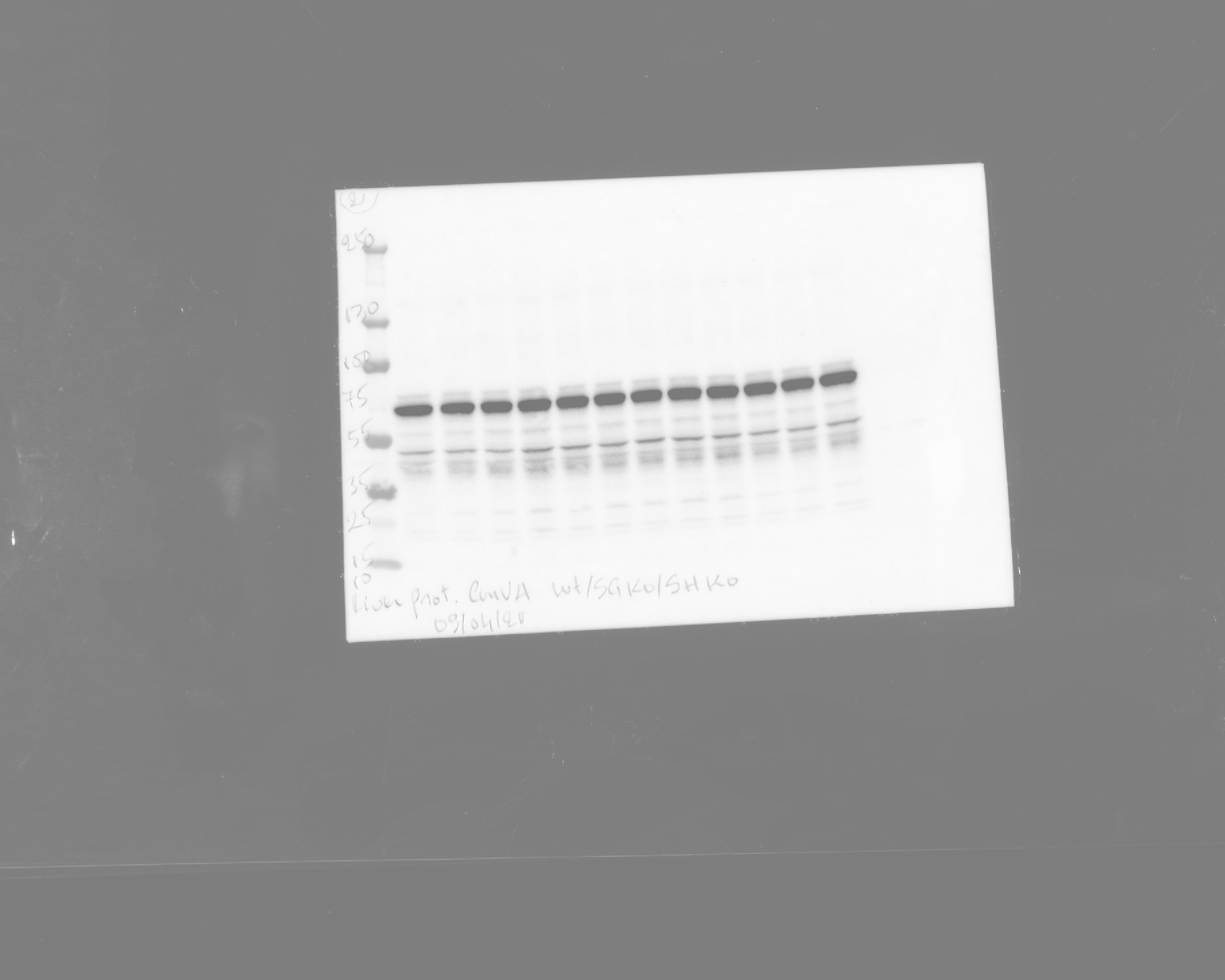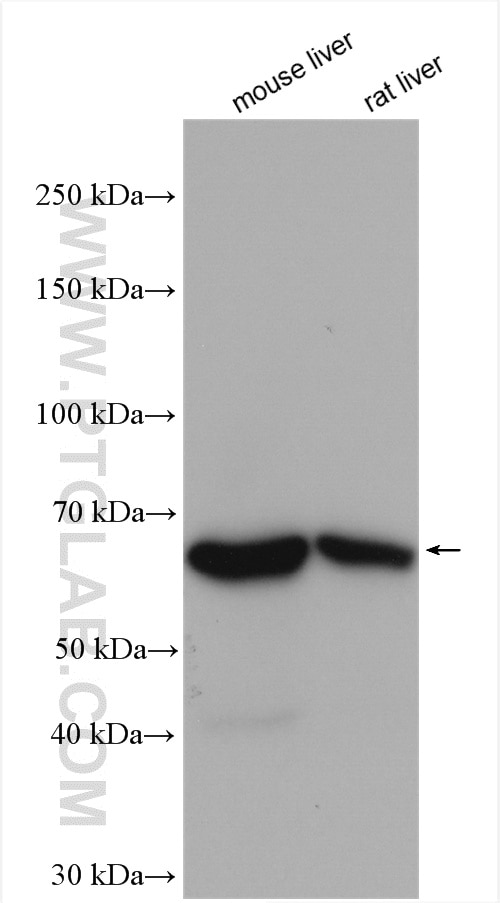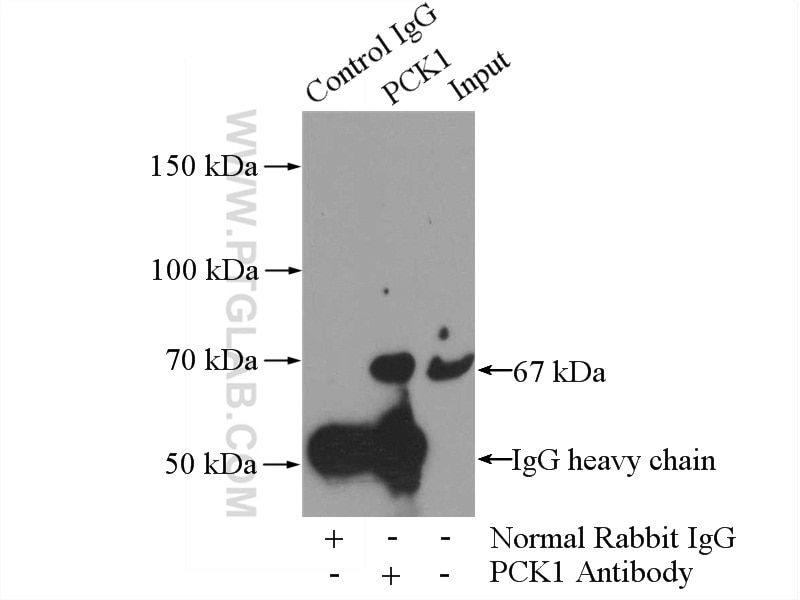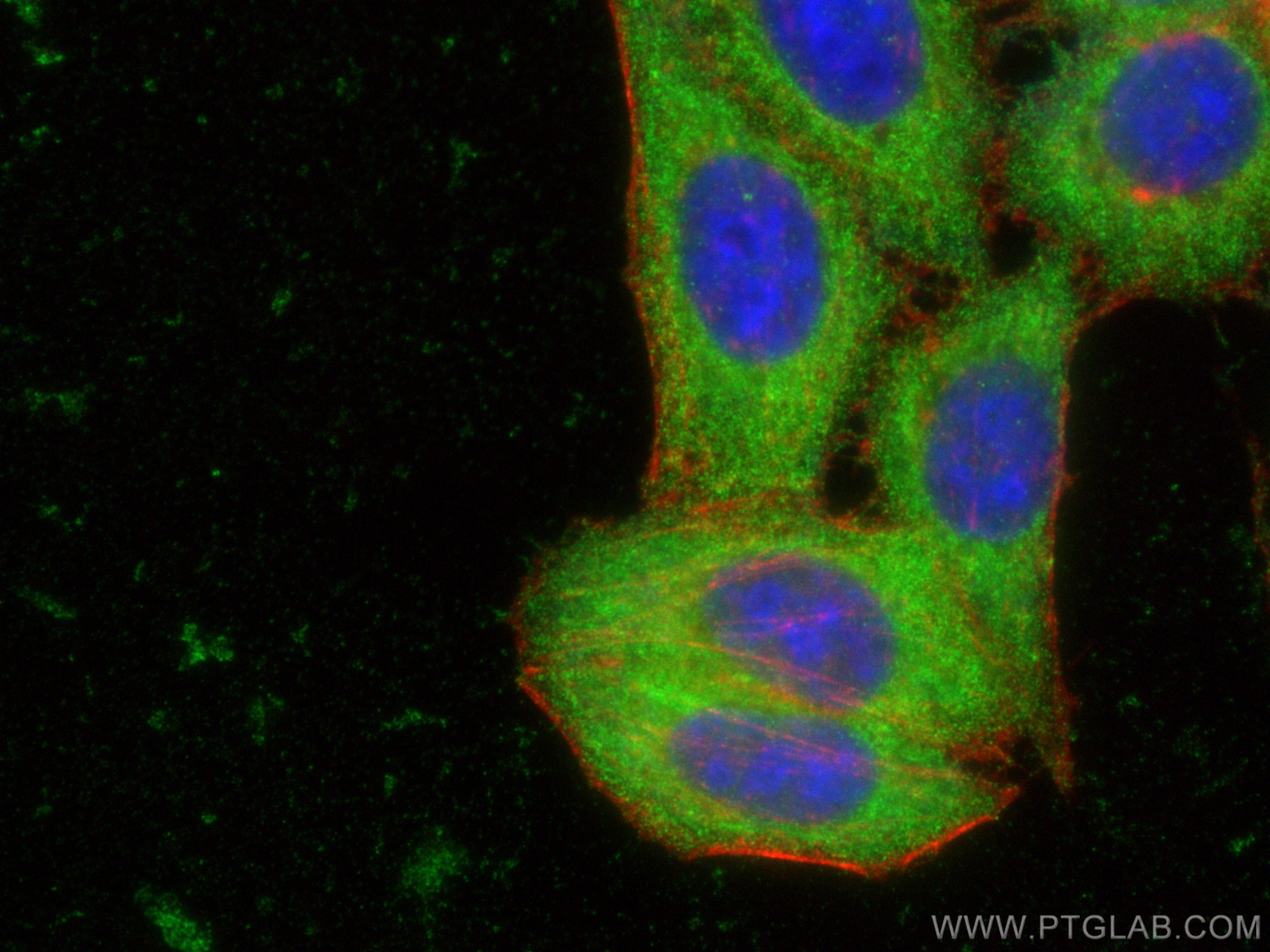- Phare
- Validé par KD/KO
Anticorps Polyclonal de lapin anti-PCK1/2
PCK1/2 Polyclonal Antibody for WB, IF/ICC, IP, ELISA
Hôte / Isotype
Lapin / IgG
Réactivité testée
Humain, rat, souris et plus (3)
Applications
WB, IHC, IF/ICC, IP, CoIP, ELISA
Conjugaison
Non conjugué
N° de cat : 16754-1-AP
Synonymes
Galerie de données de validation
Applications testées
| Résultats positifs en WB | tissu hépatique de souris, tissu hépatique de rat |
| Résultats positifs en IP | cellules HepG2 |
| Résultats positifs en IF/ICC | cellules HepG2, |
Dilution recommandée
| Application | Dilution |
|---|---|
| Western Blot (WB) | WB : 1:5000-1:50000 |
| Immunoprécipitation (IP) | IP : 0.5-4.0 ug for 1.0-3.0 mg of total protein lysate |
| Immunofluorescence (IF)/ICC | IF/ICC : 1:50-1:500 |
| It is recommended that this reagent should be titrated in each testing system to obtain optimal results. | |
| Sample-dependent, check data in validation data gallery | |
Applications publiées
| KD/KO | See 6 publications below |
| WB | See 78 publications below |
| IHC | See 8 publications below |
| IF | See 15 publications below |
| IP | See 4 publications below |
| CoIP | See 1 publications below |
Informations sur le produit
16754-1-AP cible PCK1/2 dans les applications de WB, IHC, IF/ICC, IP, CoIP, ELISA et montre une réactivité avec des échantillons Humain, rat, souris
| Réactivité | Humain, rat, souris |
| Réactivité citée | rat, bovin, Chèvre, Humain, porc, souris |
| Hôte / Isotype | Lapin / IgG |
| Clonalité | Polyclonal |
| Type | Anticorps |
| Immunogène | PCK1/2 Protéine recombinante Ag10261 |
| Nom complet | phosphoenolpyruvate carboxykinase 1 (soluble) |
| Masse moléculaire calculée | 622 aa, 69 kDa |
| Poids moléculaire observé | 66-69 kDa |
| Numéro d’acquisition GenBank | BC023978 |
| Symbole du gène | PCK1 |
| Identification du gène (NCBI) | 5105 |
| Conjugaison | Non conjugué |
| Forme | Liquide |
| Méthode de purification | Purification par affinité contre l'antigène |
| Tampon de stockage | PBS with 0.02% sodium azide and 50% glycerol |
| Conditions de stockage | Stocker à -20°C. Stable pendant un an après l'expédition. L'aliquotage n'est pas nécessaire pour le stockage à -20oC Les 20ul contiennent 0,1% de BSA. |
Informations générales
PCK1(Phosphoenolpyruvate carboxykinase, cytosolic) is also named as PEPCK1 and belongs to the phosphoenolpyruvate carboxykinase [GTP] family. It catalyzes the formation of phosphoenolpyruvate from oxaloacetate, with the release of carbon dioxide and GDP. It is also a main control point for the regulation of gluconeogenesis. In eukaryotes there are two isozymes: a cytoplasmic one and a mitochondrial one. Defects in PCK1 are the cause of cytosolic phosphoenolpyruvate carboxykinase deficiency (C-PEPCKD). This antibody has weak cross-reactivity with PCK2 protein due to high sequence homology between PCK1 and PCK2.
Protocole
| Product Specific Protocols | |
|---|---|
| WB protocol for PCK1/2 antibody 16754-1-AP | Download protocol |
| IF protocol for PCK1/2 antibody 16754-1-AP | Download protocol |
| IP protocol for PCK1/2 antibody 16754-1-AP | Download protocol |
| Standard Protocols | |
|---|---|
| Click here to view our Standard Protocols |
Publications
| Species | Application | Title |
|---|---|---|
Nature The gluconeogenic enzyme PCK1 phosphorylates INSIG1/2 for lipogenesis.
| ||
Nat Commun Glycogen metabolism regulates macrophage-mediated acute inflammatory responses. | ||
Adv Healthc Mater Mesenchymal Stem Cell Exosomes Encapsulated Oral Microcapsules for Acute Colitis Treatment. | ||
Biomaterials Liver-targeted Nano-MitoPBN normalizes glucose metabolism by improving mitochondrial redox balance. | ||
Proc Natl Acad Sci U S A Circadian clock-dependent and -independent rhythmic proteomes implement distinct diurnal functions in mouse liver.
|
Avis
The reviews below have been submitted by verified Proteintech customers who received an incentive for providing their feedback.
FH James (Verified Customer) (11-18-2022) | Detection of PCK1 in liver protein extracts
 |




